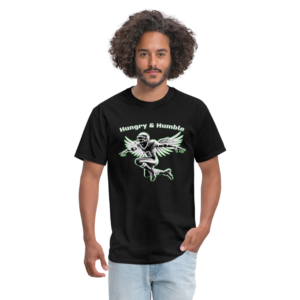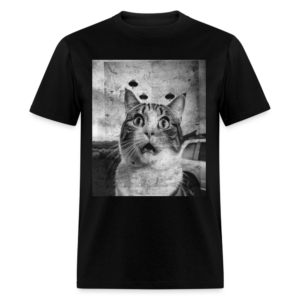Your cart is currently empty!
Free shipping over $50 for the month of April using code aprilship
The National Football League (NFL) has long been one of the most popular sports organizations in the United States. However, its history has been marred by concerns about player safety, particularly regarding concussions and head injuries. Recently, Philadelphia Eagles quarterback Jalen Hurts has been at the center of concussion protocol discussions, raising fresh questions about the effectiveness and consistency of these safety measures.
In response to growing evidence of long-term brain damage among players, the NFL implemented a Concussion Protocol in 2009. This system aims to protect players by identifying and managing concussions during games and practices.
In this article, we explore the details of the NFL Concussion Protocol, its impact, and the stories of 10 notable players whose careers were affected by concussions.
What Is the NFL Concussion Protocol?
The NFL Concussion Protocol is a set of guidelines and procedures designed to diagnose, manage, and treat concussions in players. It includes the following key steps:
- Baseline Testing: Before the season begins, all players undergo cognitive, balance, and neurological tests. These results serve as a baseline to compare against if a player is suspected of having a concussion.
- On-Field Assessment: If a player shows signs of a concussion, such as confusion, dizziness, or loss of consciousness, they are immediately removed from the game for evaluation.
- Sideline and Locker Room Evaluation: A team physician and an unaffiliated neurotrauma consultant (UNC) conduct a detailed assessment, including memory tests and balance checks.
- Return-to-Play Protocol: If a concussion is diagnosed, the player must go through a step-by-step recovery process before returning to the field. This includes rest, light aerobic exercise, and medical clearance.
- Independent Clearance: The player must be cleared by both a team physician and an independent neurological consultant.
While the protocol has improved player safety, it has also sparked debates about its effectiveness and consistency.
10 Players Whose Careers Were Impacted by Concussions
The following players’ stories highlight the serious consequences of concussions in the NFL:
1. Troy Aikman
The Dallas Cowboys quarterback and Hall of Famer suffered multiple concussions during his career. One notable instance occurred during the 1994 NFC Championship Game against the San Francisco 49ers, where Aikman was knocked out of the game following a brutal hit. Despite leading his team to three Super Bowl titles, Aikman’s head injuries were a significant factor in his decision to retire in 2000. Today, he is an advocate for player health and safety.
2. Steve Young
Another legendary quarterback, Steve Young of the San Francisco 49ers, dealt with numerous concussions. A career-ending hit occurred in 1999 during a game against the Arizona Cardinals when Young was blindsided by cornerback Aeneas Williams. Young was left unconscious on the field, marking the end of his playing days. He has since been an advocate for player safety.
3. Junior Seau
The late Junior Seau, a linebacker with a 20-year NFL career, is one of the most tragic examples of the long-term effects of concussions. While specific in-game incidents weren’t always highlighted, Seau’s aggressive playing style led to repeated head trauma. After his death in 2012, an autopsy revealed chronic traumatic encephalopathy (CTE), a degenerative brain condition linked to repeated head injuries.
4. Wes Welker
The former wide receiver for the New England Patriots and Denver Broncos suffered numerous concussions throughout his career. One memorable instance occurred during a 2013 game against the Tennessee Titans, where a helmet-to-helmet hit sidelined him for multiple weeks. Despite wearing a special helmet designed to reduce head injuries, Welker’s concussions contributed to his early retirement in 2015.
5. Luke Kuechly
The Carolina Panthers linebacker was one of the NFL’s best defensive players before retiring in 2020 at just 28 years old. Kuechly’s most notable concussion occurred during a 2016 game against the New Orleans Saints, where he was carted off the field in tears after a head-to-head collision. This moment highlighted the emotional toll of repeated head injuries and played a significant role in his decision to retire.
6. Austin Collie
Collie, a wide receiver for the Indianapolis Colts, showed immense potential early in his career. One of his most devastating concussions occurred during a 2010 game against the Philadelphia Eagles, where a violent hit left him motionless on the field. Repeated concussions forced him into early retirement, sparking widespread discussions about helmet safety and rule changes.
7. Jahvid Best
A promising running back for the Detroit Lions, Best’s career was cut short by concussions. A particularly severe incident occurred during a 2011 game against the San Francisco 49ers, where Best suffered his second concussion of the season. Doctors later warned that continuing to play could lead to permanent damage, prompting his early retirement.
8. Tua Tagovailoa
The Miami Dolphins quarterback has faced multiple concussions during his career, raising concerns about his long-term health. In the 2022 season, Tagovailoa suffered a highly publicized concussion during a game against the Cincinnati Bengals. After a hard tackle, his fingers seized up in a fencing response, a clear sign of brain trauma. This incident reignited debates about the effectiveness of the NFL Concussion Protocol.
9. Chris Borland
Borland, a linebacker for the San Francisco 49ers, retired after just one season, citing concerns about the long-term effects of head injuries. During a preseason game in 2014, Borland experienced a collision that, while not diagnosed as a concussion, made him reconsider the risks associated with playing football. His decision drew attention to the dangers young players face in the sport.
10. Ben Roethlisberger
The Pittsburgh Steelers quarterback dealt with multiple concussions during his career. A notable instance occurred in 2009 during a game against the Kansas City Chiefs, where Roethlisberger was knocked out after being sacked. Although he continued to play for many years, Roethlisberger has been vocal about the importance of safety and following the Concussion Protocol.
The Impact of the Concussion Protocol
The NFL Concussion Protocol has led to several positive changes, including:
- Increased Awareness: Players, coaches, and fans now have a better understanding of the risks associated with concussions.
- Faster Diagnoses: The presence of UNCs ensures quicker and more accurate evaluations.
- Rule Changes: The NFL has introduced rules to reduce head injuries, such as penalizing helmet-to-helmet hits and banning blindside blocks.
- Advances in Equipment: Teams now use helmets designed to mitigate the impact of collisions.
However, critics argue that the protocol is not always consistently applied and that players may still feel pressured to return to the field prematurely.
Looking Ahead
While the NFL Concussion Protocol has made strides in protecting players, ongoing research and technological advancements will be crucial in minimizing the risks of head injuries. The league must remain vigilant in enforcing its guidelines and supporting players both on and off the field.
The stories of these 10 players serve as a reminder of the physical and emotional toll of concussions. As the NFL continues to adapt, the hope is that future generations of players can enjoy the game with reduced risks.
Retro Neon Football Player Dabbing After Touchdown Crewneck Sweatshirt
Retro Neon Football Player Dabbing After Touchdown Crewneck Sweatshirt. Stay cozy and stylish with the Retro Neon Football Player Dabbing After Touchdown Crewneck Sweatshirt! Featuring a vibrant neon graphic of a football player celebrating with a dab, this sweatshirt is perfect for sports enthusiasts who love to show off their passion for the game. Made with soft, premium fabric, it combines warmth and durability, making it ideal for cool game days, casual wear, or lounging in comfort.
-

Hungry and Humble Football Player Flapping Arms Touchdown Celebration Unisex Classic T-Shirt #philly
$19.99 Select options This product has multiple variants. The options may be chosen on the product page -

Africatown in Philly Phrase Unisex Classic T-Shirt
$13.99 Select options This product has multiple variants. The options may be chosen on the product page -

Vintage Funny Cat Selfie UFO Alien Invasion Unisex Classic T-Shirt
$13.99 Select options This product has multiple variants. The options may be chosen on the product page -

Vintage Philly Underdogs German Shepherds Unisex Classic T-Shirt
$9.99 Select options This product has multiple variants. The options may be chosen on the product page -

Voxel Art I Luv Tech Unisex Classic T-Shirt
$19.99 Select options This product has multiple variants. The options may be chosen on the product page
————————————————
We use AI GPT Chatbots to help with our content and may get some things wrong.
————————————————-



 Why We Love PinkPantheress’s Unique Production Style: The Future of Music Vibes
Why We Love PinkPantheress’s Unique Production Style: The Future of Music Vibes Why Are Oceans Salty But Rivers Fresh? The Secret to Earth’s Survival
Why Are Oceans Salty But Rivers Fresh? The Secret to Earth’s Survival 





